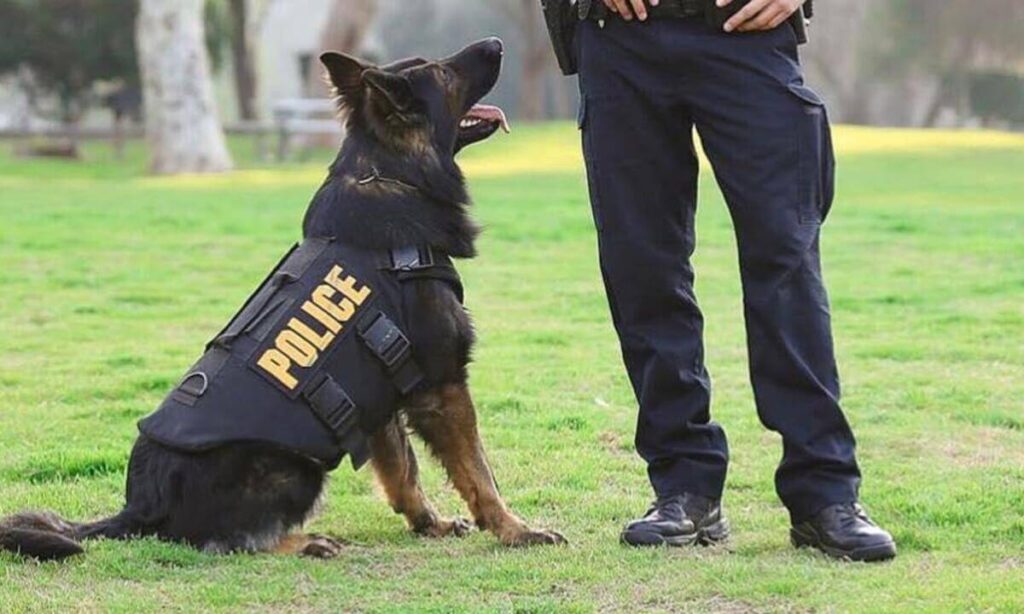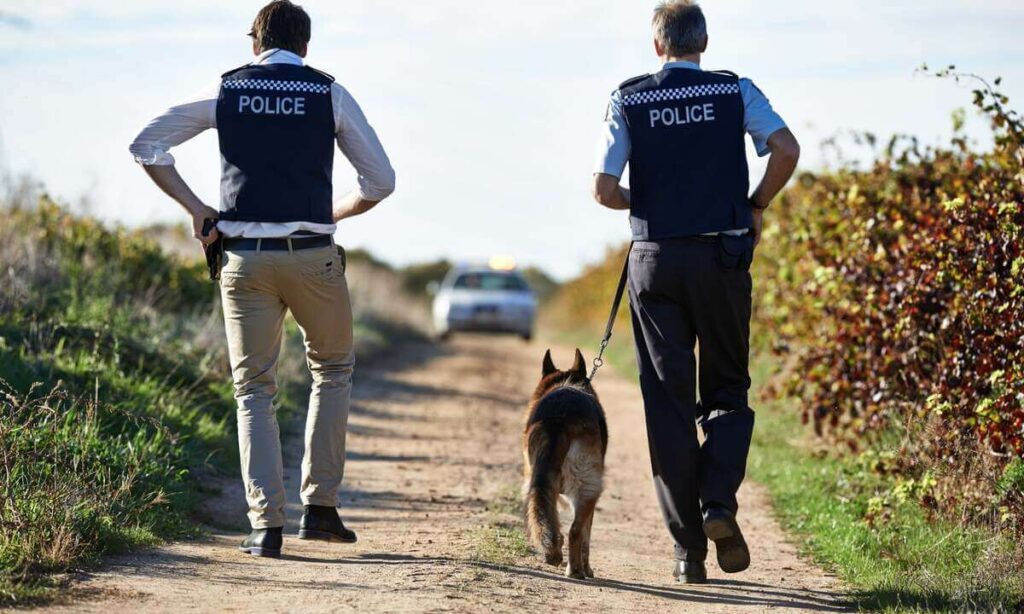K9 officers are highly trained law enforcement professionals who help and assist police officers in a variety of circumstances. These officers are in charge of handling and training police dogs, popularly known as K9s. A K9 officer’s bond with their canine partner matters most because they rely on each other to protect the safety and security of their community. If you enjoy both law enforcement and dogs, becoming a K9 officer could be the ideal job for you. This step-by-step tutorial will walk you through the process of becoming a K9 officer, from meeting the fundamental requirements to gaining certification and license. Here’s how to become a K9 officer:
What do K9 Officers do?
K9 officers, often known as police dog handlers, operate with specially trained dogs to uphold the law and protect the public. These dogs, who tend to be German Shepherds, Belgian Malinois, or Labrador Retrievers, go through extensive training to become skilled in a variety of activities. K9 officers are in charge of caring for, training, and deploying these highly trained dogs.
A K9 officer’s main duty is to help in the tracking and apprehending of suspects. These dogs have a keen sense of smell and are taught to track down people who are hiding or fleeing from the authorities. Their tracking abilities are crucial in locating missing people and wanted offenders. K9 police are extremely important in detecting narcotics and explosives, assuring the protection of the public.
How to Become a K9 Officer
Becoming a K9 officer involves a combination of education, physical fitness, and dedication. Here are the necessary steps to get you started on your path to this rewarding career:
Step 1: Meet the basic qualifications
Before beginning your path to becoming a K9 officer, you must complete the basic requirements established by law enforcement agencies. These requirements vary for each agency but often include being at least 21 years old, holding a valid driver’s license, and having a high school diploma or equivalent. K9 police frequently engage in physically demanding activities, therefore physical conditioning is essential. Candidates must also have a clean criminal record and pass a rigorous background check. Meeting these fundamental requirements is the first step toward a career as a K9 officer.
Step 2: Gain relevant education and experience
While a college degree is not usually required to become a K9 officer, having relevant education and experience can considerably improve your chances of acceptance into a law enforcement agency. Consider studying criminal justice, law enforcement, or a related area. These programs will equip you with vital knowledge and skills that you can utilize in your work as a K9 officer. It is also essential to have experience working with dogs. Volunteer at local animal shelters or look for ways to help expert dog trainers. This will not only demonstrate your dedication to working with dogs but will also assist you in developing the skills necessary to effectively handle and train police dogs.
Step 3: Join a law enforcement agency
You must first become a police officer before you can become a K9 officer. Working in law enforcement is a crucial step in this process. Investigate several agencies and their requirements before applying to become a police officer. This often involves a stringent screening procedure that includes written exams, physical fitness testing, and interviews. Once accepted into a law enforcement agency, you will receive comprehensive training to become a police officer. This training includes a variety of law enforcement topics, such as self-defense, firearms, and community policing. During your training, you can express your enthusiasm in becoming a K9 officer and ask for advice from your superiors.
Step 4: Apply for K9 officer training
After gaining experience and skills as a police officer, you can apply for K9 officer training. This specialized training is focused on teaching you how to efficiently handle and train police canines. Because there are limited spaces available, the selection process for K9 officer training is often tough. Showcase your devotion, talents, and expertise to boost your chances of acceptance. Once accepted into the program, you will go through intense training involving obedience training, scent detecting, tracking, and apprehension tactics. This training will equip you to work alongside a K9 companion and respond properly to a variety of law enforcement circumstances.
Step 5: Obtain certification and licensing
After having successfully finished K9 officer training, it is time to receive the proper certifications and licensing. These certificates verify that you meet the professional requirements required to serve as a K9 officer. The specific certifications and licensing requirements can vary based on your area, therefore it is critical to investigate and follow the restrictions established by your local law enforcement organization. Additionally, continual training and education are required to retain your skills as a K9 officer. Participate in workshops, seminars, and advanced training programs to stay up to date on the latest techniques and advances in the field.
K9 Officer Salary and Career Outlook
You will likely have a successful and enjoyable career as a K9 officer. Aside from that, K9 officer salaries vary depending on factors such as location, agency, and amount of experience. K9 cops often make between $62,000 to $112,000 per year, according to Glassdoor. K9 officers often get additional income for being a part of the K9 unit in addition to their normal salary.
The future of K9 cops looks bright. K9 units make significant contributions to law enforcement, and agencies continue to invest in these specialized teams. The demand for skilled K9 police is likely to increase in the next years, creating numerous chances for those interested in this field. With devotion and a love of both law enforcement and dogs, you may flourish in this challenging yet rewarding job.
FAQs
1. What qualifications do you need to be a K9 officer?
To become a K9 officer, you’ll usually need to complete the minimum requirements established by your local police enforcement agency. These prerequisites usually include being at least 21 years old, possessing a high school diploma or GED, and having a clean criminal record. Physical fitness exams as well as specific medical requirements may also be required.
2. What degree do you need to be a K9 officer?
A degree in criminal justice or a related field may improve your chances of getting chosen for the job, but it is not often necessary to become a K9 officer. Having a degree can help you gain an in-depth understanding of law enforcement procedures and principles, which will be helpful in your K9 officer employment.
3. How much do K9 police officers make?
K9 police officers may earn different salaries based on their level of experience, the jurisdiction they work in, and their position within the law enforcement hierarchy. K9 police officers often make between $62,000 to $112,000 per year, according to Glassdoor.
4. How much do K9 officers make an hour?
Depending on the annual income and the amount of hours worked, K9 officers’ hourly pay may differ. The typical hourly pay for K9 cops is between $13.70 and $29.33, according to ZipRecruiter.
Conclusion
For people who are passionate about law enforcement and dogs, becoming a K9 officer can be a satisfying and successful career choice. Your quest to become a K9 officer is possible by following this detailed, step-by-step instruction. Remember to fulfill the requirements, get relevant training and experience, become a member of the law enforcement community, apply for K9 officer training, and get the required licenses and certificates. As a K9 officer, you can have an impact if you are dedicated to serving your community and put in a lot of effort and hard work. So go ahead and start pursuing your goal of being a K9 officer right now.
Did you find this article helpful? Check out this one too: Do You Need a Degree to Be a Cop? Thanks for reading!






